Abstract
The principal question of this paper is: Why are religious values special in refusal of lifesaving medical treatment? This question is approached through a critical examination of a common kind of refusal of treatment case, one involving a rational adult. The central value cited in defence of honouring such a patient's refusal is autonomy. Once autonomy is isolated from other justificatory factors, however, possible cases can be imagined which cast doubt on the great valuational weight assigned it by strong anti-paternalists. This weight is sufficient, in their estimation, to justify honouring the patient's refusal. There is thus a tension between the strong anti-paternalist's commitment to the sufficiency of autonomy and our intuitions respecting such cases. Attempts can be made to relieve this tension, such as arguing that patients aren't really rational in the circumstances envisaged, or that other values, such as privacy or bodily integrity, if added to autonomy, are sufficient to justify an anti-paternalistic stance. All such attempts fail, however. But what does not fail is the addition of religious freedom, freedom respecting a patient's religious beliefs and values. Why religious freedom reduces the tension is then explained, and the specialness of religious beliefs and values examined.
Full text
PDF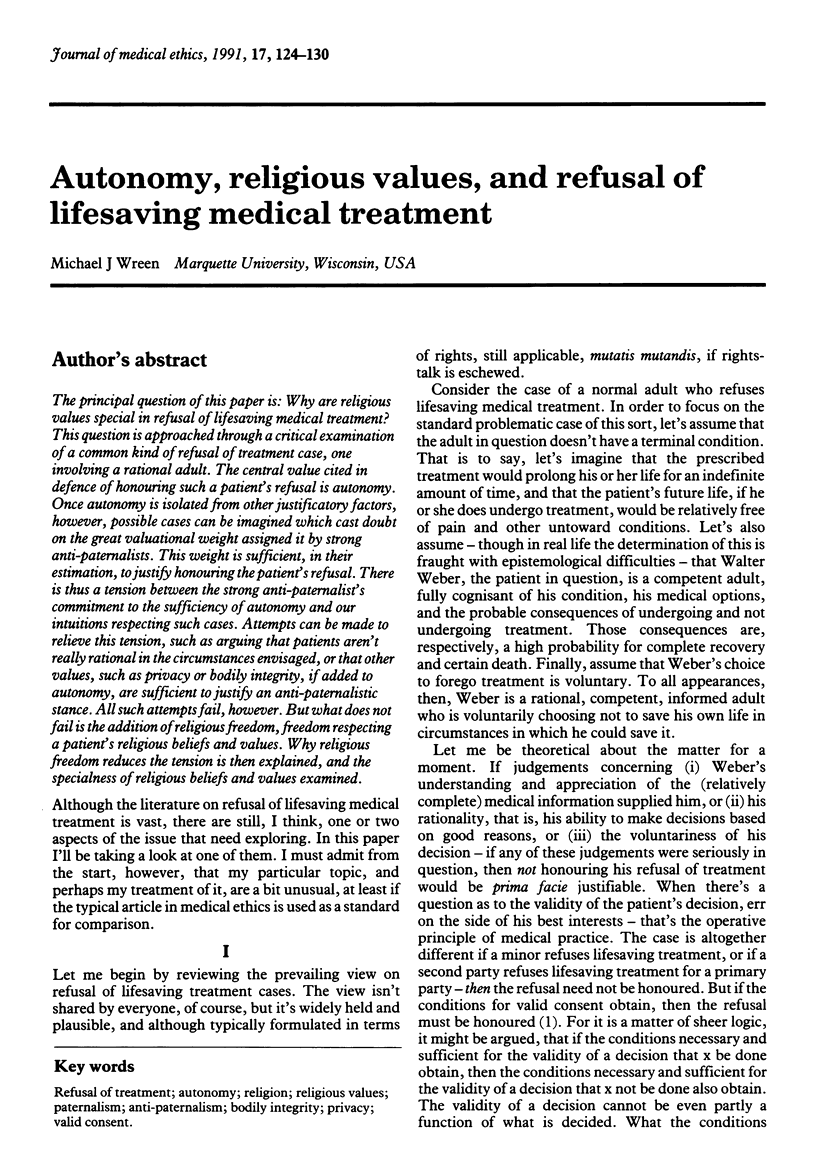
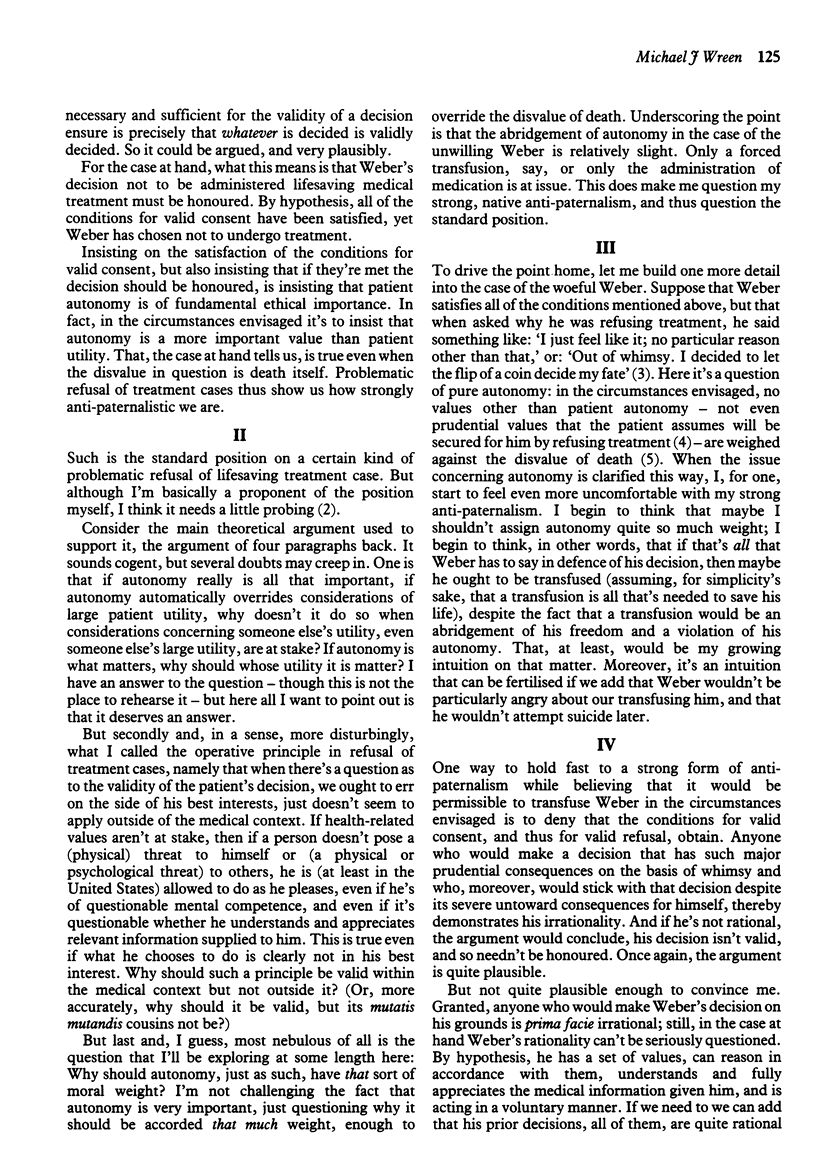
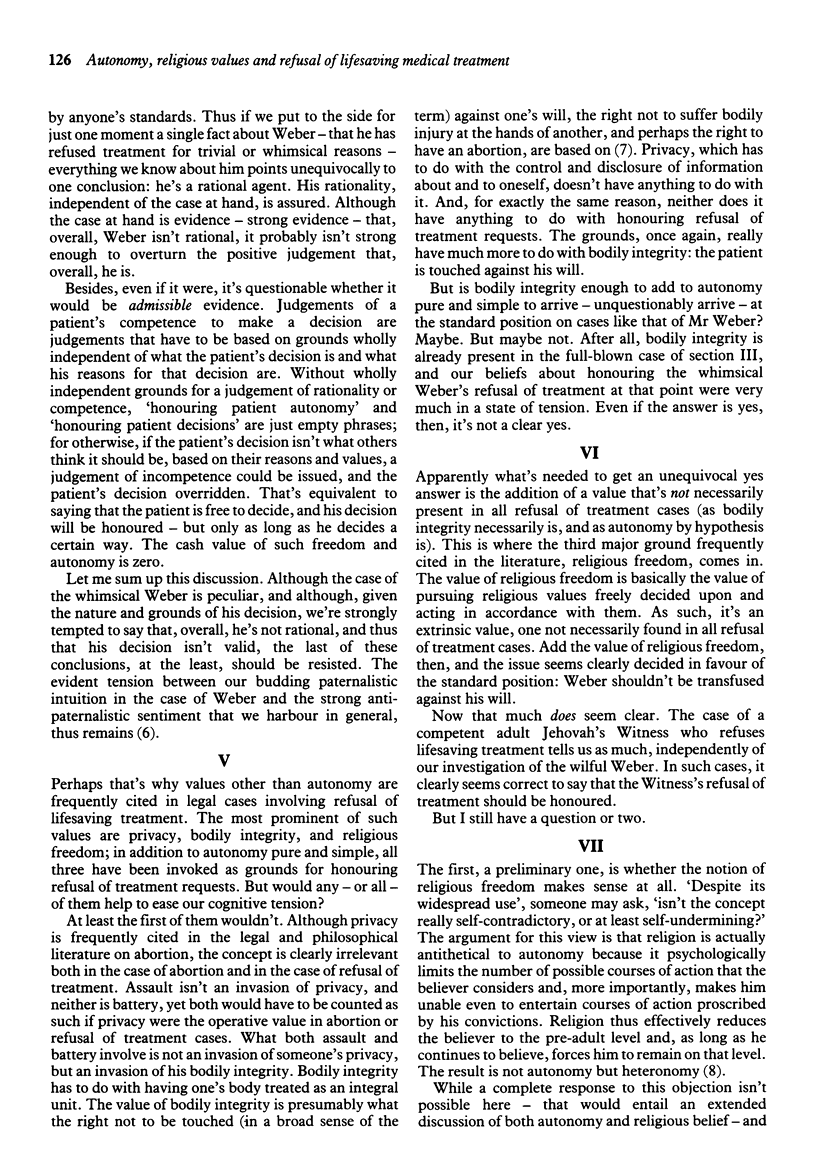
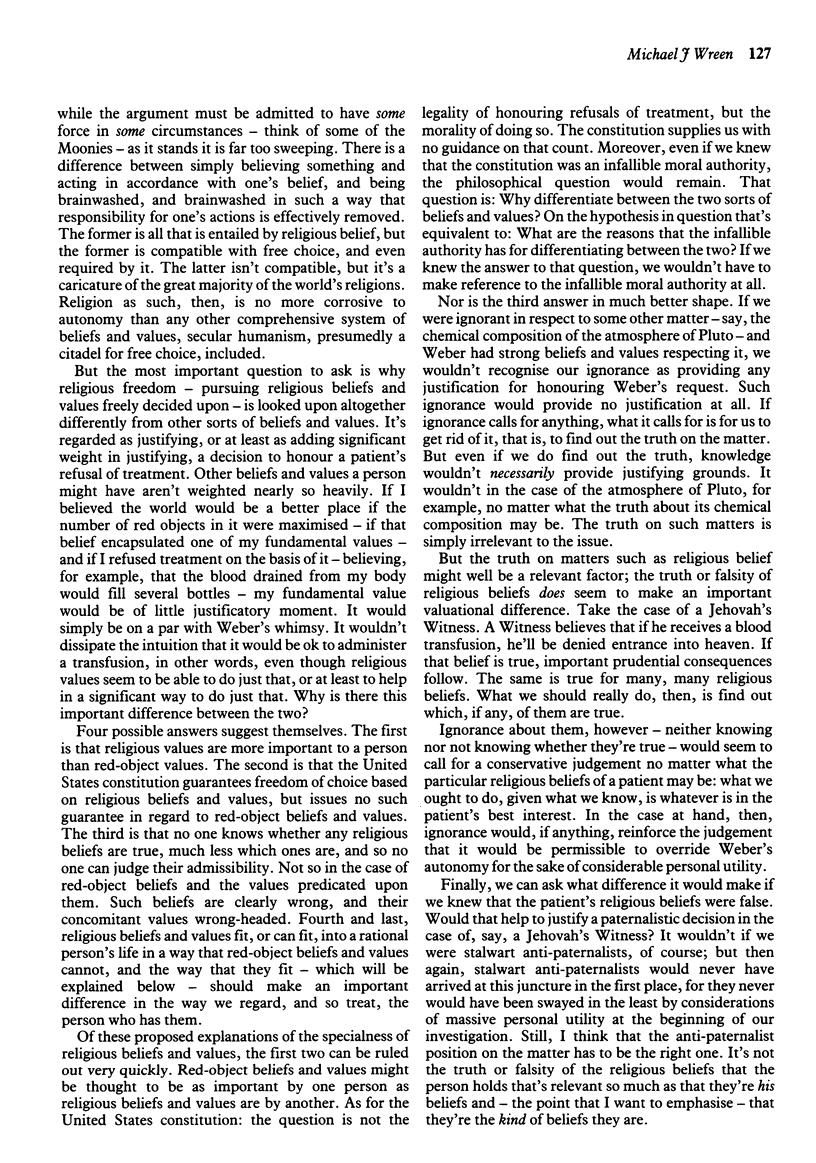
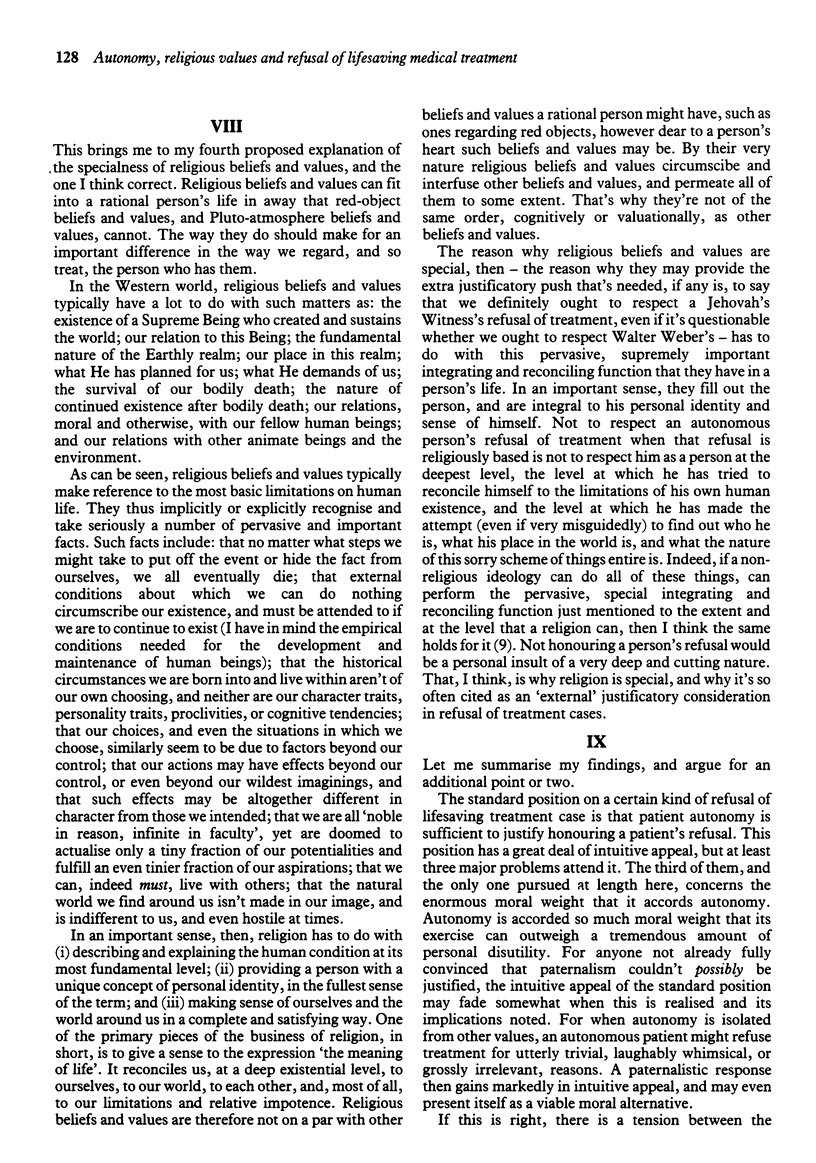
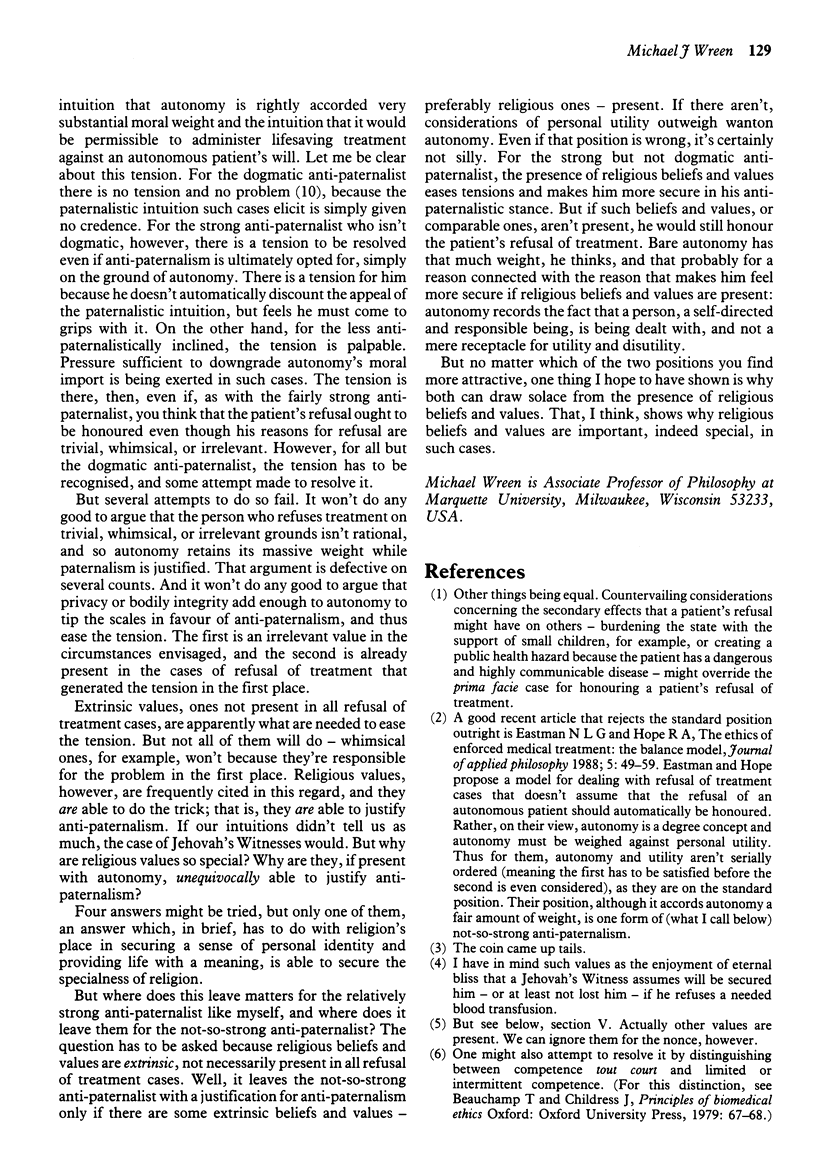
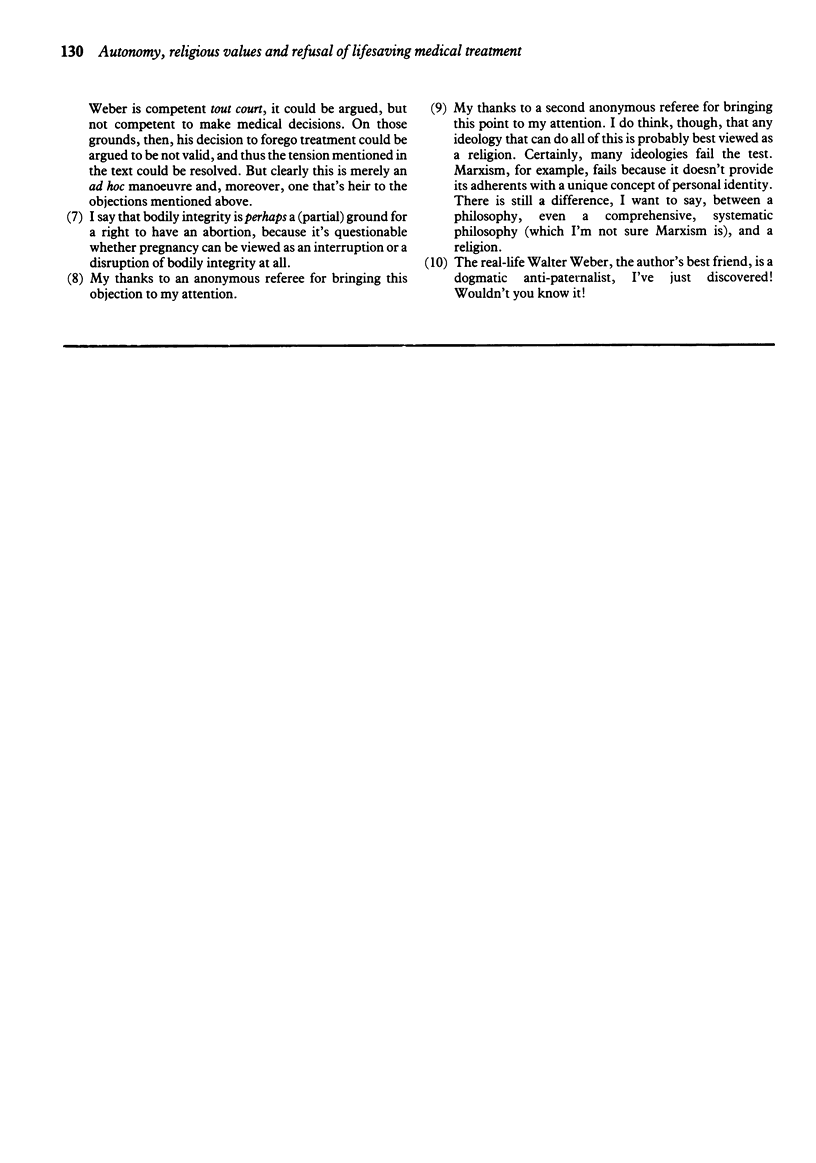
Selected References
These references are in PubMed. This may not be the complete list of references from this article.
- Eastman Nigel L. G., Hope R. A. The ethics of enforced medical treatment: the balance model. J Appl Philos. 1988;5(1):49–59. doi: 10.1111/j.1468-5930.1988.tb00228.x. [DOI] [PubMed] [Google Scholar]


